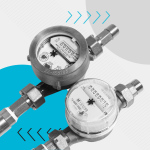
- Are you a farmer considering buying a new tractor or combine harvester? Would you like to make your own choice? This may not be possible if the dealers have agreed who you will buy from and for how much.
- The President of UOKiK brought charges against 11 companies and 5 managers, suspecting them of an illegal agreement as part of the distribution system for Valtra, Fendt and Massey Fergusson machines.
The suspected agreement may have involved market sharing and illegal price fixing for agricultural machinery, including tractors and combine harvesters manufactured by Valtra, Fendt and Massey Ferguson, as well as spare parts for Valtra and Fendt. The President of UOKiK, Tomasz Chróstny, brought charges against AGCO, a wholesale distributor which introduces both the aforementioned vehicles and spare parts to the Polish market. The procedure is also being conducted against 10 dealers who sell machines and accessories to retail customers, mainly farmers. UOKiK obtained evidence of suspected collusion during searches of company premises, during which electronic correspondence between entrepreneurs was secured.
– The evidence we have gathered shows that AGCO and independent dealers divided the market between themselves and sold vehicles only to customers from their assigned areas. When a farmer from another area approached the wrong dealer in search of a better offer, he was referred to a competing seller or otherwise discouraged from making a purchase, e.g. he was offered a deliberately inflated price - says Tomasz Chróstny, President of UOKiK.
What could the suspected agreement for buyers have looked like in practice?
A farmer who was looking for a tractor from AGCO’s portfolio did a thorough market research. When he called several dealers, they either referred him to the dealer closest to his place of residence or offered him a high price. In the end, he couldn’t find better terms anywhere else than at his local dealer. It may have only been the best proposal on the surface, but in reality it was predetermined by the participants of the suspected collusion. Under conditions of fair competition between businesses, the buyer could have obtained a more attractive offer from another dealer.
How could the agreement between sellers have looked in practice?
The evidence suggests that one of the dealers’ schemes may have worked as follows: A dealer who received a call from a customer outside his assigned territory would contact his competitor. In such cases, dealers would exchange information about prices so that farmers looking for offers outside their assigned region would hear a higher price than at their local dealer.
If a situation arose in which one of the dealers decided to break the agreement, the others could complain about him directly to AGCO. According to the suspicions of UOKiK, the company intervened in cases where one of the dealers wanted to sell a vehicle to a customer outside the allocated area.
Who has been charged?
The entrepreneurs against whom proceedings are being conducted are: AGCO from Paczków, Agrotechnik from Stawiska, Agronom from Jasionka, Agravis Technik Polska from Pianowo, Agrolmet AG from Gniewkowo, Agro-Marek Wiesław Marek from Skrzyszów, Agro-Marek from Skrzyszów, Łukasz Szlufik P.T.H.U Lukpol from Daleszyce, Lukpol Agro from Górna, Agrimar from Stołpie, Euromasz from Lipka.
Among the five individuals charged, three work or have worked at AGCO, and one each at Agronom and Agrimar.
An enterprise involved in a competition-restricting agreement faces a fine of up to 10% of its revenue. The managers responsible for entering into the price-fixing arrangement face a fine of up to PLN 2 million.
Severe penalties for participation in collusion can be avoided by taking advantage of the leniency scheme. It offers businesses involved in an illegal agreement and managers responsible for entering into a collusion arrangement an opportunity to reduce a sanction or, in some cases, avoid it altogether. It is intended for those who agree to cooperate with the President of UOKiK as a “crown witness” and provide evidence or information regarding the existence of a prohibited agreement. We encourage those interested in the leniency scheme to contact the Office at a dedicated phone number: 22 55 60 555. UOKiK staff will answer any questions about the leniency programme, including anonymous ones.
We also remind you that we operate a programme to obtain information from anonymous whistleblowers. Do you wish to inform UOKiK about competition restricting practices? Visit https://uokik.whiblo.pl/ or scan the QR code below and use the simple form. The system we use guarantees complete anonymity, including from UOKiK itself.
Information for the media
| +48 603 124 154 | |
| biuroprasowe@uokik.gov.pl | |
 | pl. Powstańców Warszawy 1 00-950 Warszawa |




















